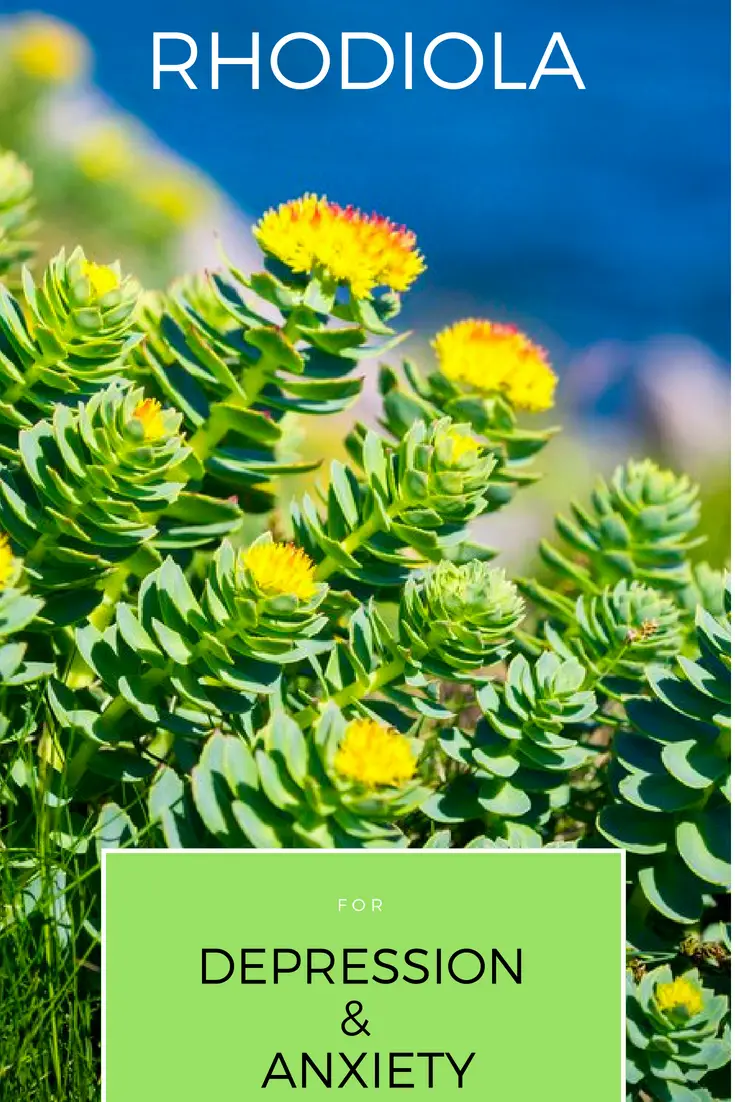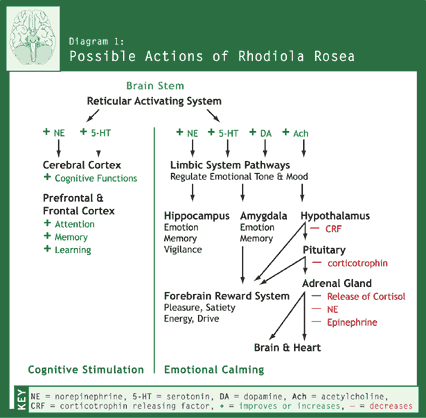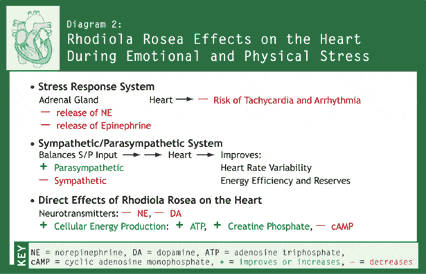Here’s a bold claim: Rhodiola rosea is the most medicinally useful herb that modern science has ever documented.
Think I’m being hyperbolic?
Well, I probably am. But the truth of the situation is that Rhodiola would certainly be at the top of any herbal expert’s best adaptogens list.
Adaptogens comprise an entire category of herbs that reduce psychological stress.
Along with Rhodiola, some of the top power-players within this class are Ashwagandha, Ginseng, Holy Basil, Valerian Root, and Maca.
[Check out our 5,000-word comparison article covering all of these adaptogens in detail]
Unlike the others though, Rhodiola is a central nervous system adaptogen as opposed to an adrenal gland adaptogen. The difference may seem trivial, but that couldn’t be farther from the truth.
A closer inspection of Rhodiola’s primary adaptogenic chemical compounds shows us that this is a highly unique herb, with potent anti-depressant and anti-anxiety inducing organic constituents.
Let’s take a closer look:
Rhodiola’s Adaptogenic Chemical Compounds:
Rosavin is the primary alcohol glycoside responsible for Rhodiola’s antidepressant actions.
Rosarin is a cinnamyl alcohol glycoside; we know very little about how it functions but we do know that it has some adaptogenic inducing properties.
Tyrosol is the main medicinally effective chemical compound found not only in Rhodiola, but also in olive oil. In fact, researchers believe that Tyrosol is responsible for most of the reported health benefits within the Mediterranean diet. It’s a potent anti-oxidant and cardioprotective phenylethanoid.
Salidroside is another primary anti-depressant and anxiolytic compound found within Rhodiola. It has been used for centuries; especially within traditional Chinese medicine as a work enhancer. Currently, body-builders and endurance athletes consume it as a supplement.
Rhodiola rosea for Depression – Published Studies
1.) This 2009 study found that Rhodiola extract, when administered to males and females aged 18-70, significantly lowered levels of overall depression and insomnia while strengthening emotional stability and somatization. No serious side-effects were found in any of the participants.
2.) Researchers found that Rhodiola reduced levels of depression in administered patients while producing no adverse effects in this study published in 2015.
3.) Another study published in 2014 found that Rhodiola was effective for treating mild to moderate levels of anxiety.
4.) This 2006 study found that Rhodiola extract induced significant antidepressant-like effects on mice.
[amazon_link asins=’B00O0WGB7K,B01NANEVDI,B076GP91F3′ template=’ProductGrid’ store=’herbexamine08-20′ marketplace=’US’ link_id=’531b220b-abd9-11e8-b9cf-1dff5b599176′]
Rhodiola rosea for Anxiety – Published Studies:
1.) Researchers used the HARS (Hamilton Anxiety Rating Scale) to study the effects of Rhodiola on administered subjects with generalized anxiety disorder in this 2008 study. For the majority of patients, anxiety levels decreased significantly.
2.) Eighty stressed patients with mild anxiety saw a significant reduction in self-reported anxiety and stress after four sessions of Rhodiola use over fourteen days in this 2015 study.
3.) Rhodiola rosea was found to be effective for mild stress and anxiety when administered to university students in this study.
Side Effects?
So, even with all of this promising research, we still don’t know exactly how Rhodiola functions. Adaptogens, in general, are fairly mysterious in their mechanisms.
With that being said, we do know that Rhodiola has very few side effects which are very rarely reported. These include: headaches, drowsiness, and an upset stomach.
Rhodiola’s LD-50 (the number at which 50% of animals die of consumption) is a whopping 235,000 mg for a 150-pound man.
Most Rhodiola supplements are 300mgs per capsule. You’d have to take over 783 capsules to overdose on Rhodiola!
(please don’t take 783 capsules)
[amazon_link asins=’B01JQNTDVS,B0001APVP8,B01HP1Y3J0,B077BJGLT7,B0016RRPWC,B001GAOHHA’ template=’ProductGrid’ store=’herbexamine08-20′ marketplace=’US’ link_id=’a36a7219-abe6-11e8-82e6-eb76af48399e’]
If you have any addition Rhodiola questions, feel free to @herbexaminer on Twitter or contact us via our contact page! Thanks for reading.







